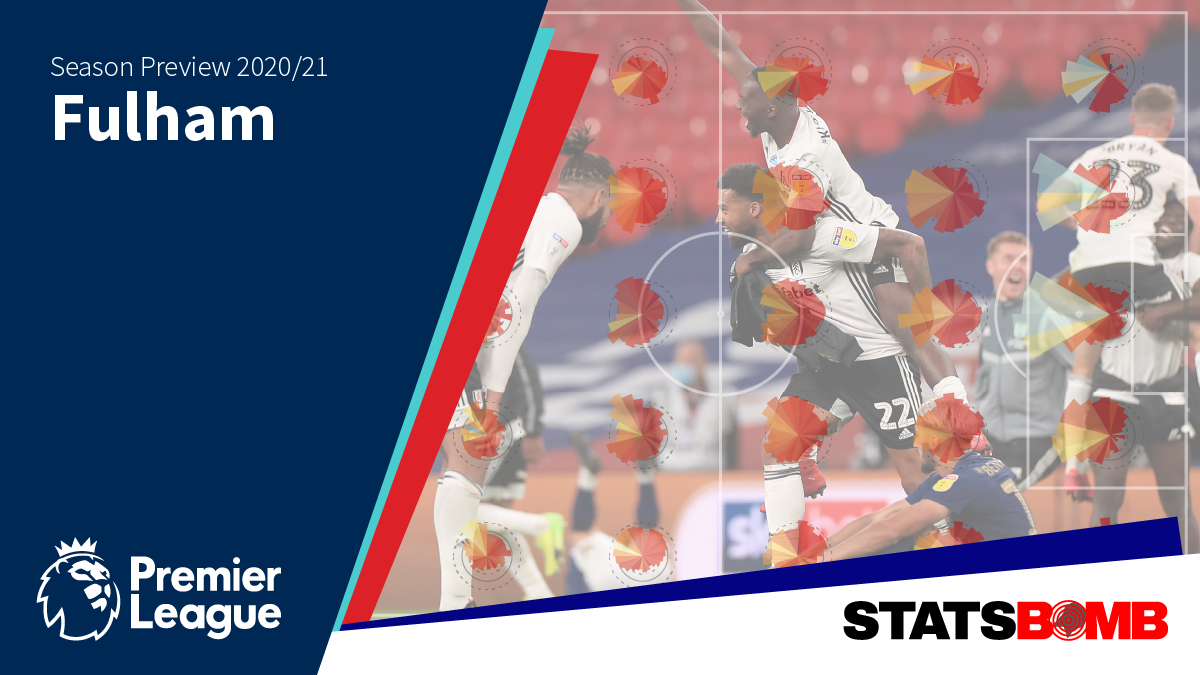Let’s start with a question. Did Fulham deserve to go up? A provocative query and, sure, it suggests I’m going to lead the argument down a certain path but, before you blow your thatched rooftops Cottagers fans, the answer is actually both yes and no. Let me explain. Scott Parker was handed the managerial reins on a permanent basis last summer, after his caretaker stint at the end of their Premier League relegation season. An immediate return to the top flight was a realistic expectation as the majority of the side that achieved promotion in style under Slaviša Jokanović in 2017/18 was retained. Parker, himself having played under Jokanović, set about implementing a similar high-possession framework to the side that went up two seasons prior and he succeeded; at 61%, Fulham were second only to Leeds in average ball possession. Something wasn’t quite the same though. Under Slaviša, it was swashbuckling. Under Parker, it was pedestrian. Previously, it was possession as a means to attack, now it seemed to be possession as a means to defend. Relative to their promotion rivals, the Cottagers struggled to turn their ball and territory control into meaningful goalscoring opportunities and it left them always seemingly hanging onto the coattails of the top two rather than leading the charge with them. The big issue was that the side very rarely took advantage of the space available in transition when winning the ball back. Quickly (ironically), the ball would get circulated between midfield and defence until the opposition had managed to reset themselves into their defensive shape, the result being that Fulham had the slowest Pace To Goal – the average speed (in metres per second) of buildup play that results in a shot - in the Championship by some way. 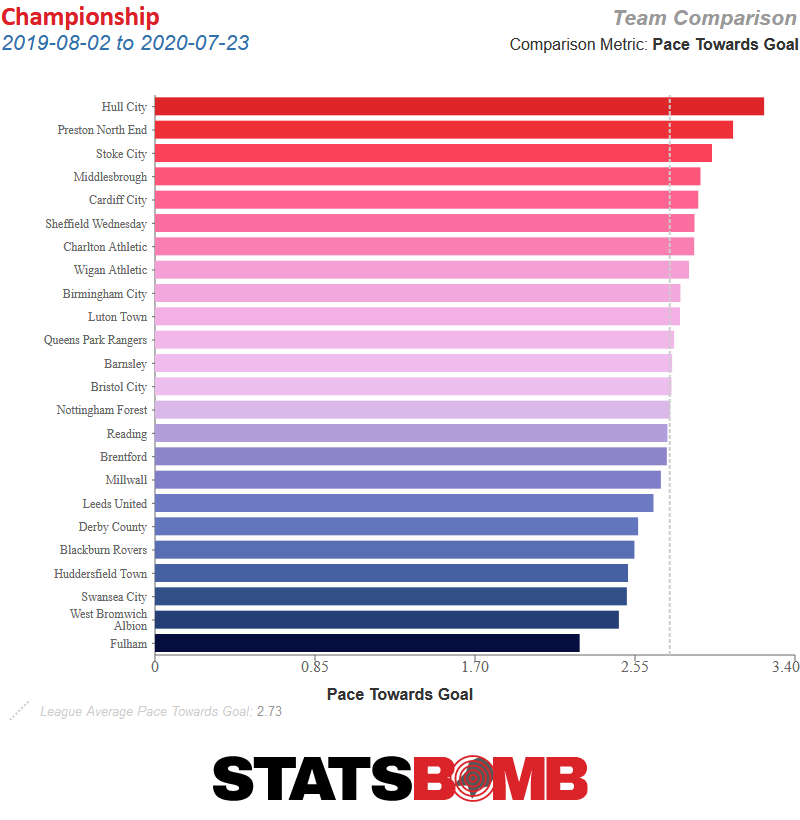 Their aversion to breaking quickly was evident in the lack of counter attacking opportunities generated, something that Jokanović’s side were not afraid to do if the space was available.
Their aversion to breaking quickly was evident in the lack of counter attacking opportunities generated, something that Jokanović’s side were not afraid to do if the space was available. 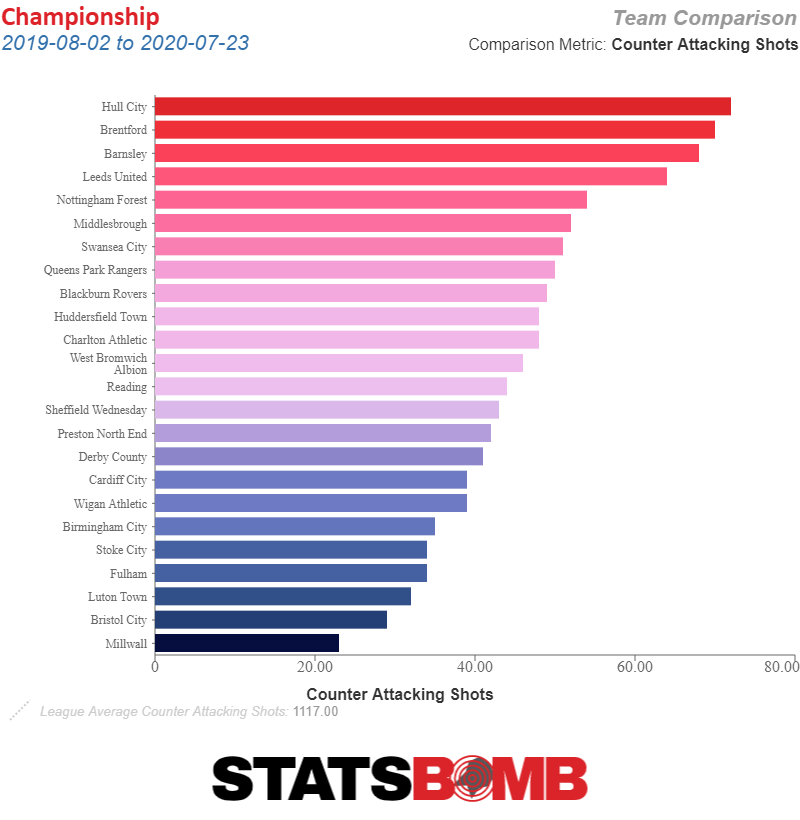 Logic dictates that you’re only going to make things more difficult for yourself if you commit to attacking against a set defence all the time and it was evident in the metrics; Fulham’s 1.18xG created per game was some way behind promotion rivals Brentford (1.33xG), West Brom (1.38xG), and Leeds (1.58xG) and others too, ranking 7th in the Championship across the regular season. Of course, there’s a balance to be struck and Fulham built a reputation for grinding out victories on the foundation of a sturdy defence, Parker’s pragmatism at least paying off at the other end of the pitch. 17 clean sheets was a total beaten only by champions Leeds, and Fulham also had a remarkable record of staying in front once they were ahead, conceding just five equalising goals in the entire season and going W21 D3 L0 in the 24 games they took the lead in. Despite that sterling record, the fans certainly weren’t particularly impressed with the regularity they were seeing their side take a lead and then sit on it rather than pushing on. Of Fulham’s 23 victories, 15 of them were by a single goal. However, there’s a real and unexpected quirk about their game state metrics. When in front, at score lines you’d expect the opposition to be having the better of the game and putting Fulham under pressure in search of an equaliser, Fulham actually created more, notching up 16.91xG to their opponents 14.24xG. They were also creating more than the opposition when scores were level, as you’d expect of a good side. Less relevant but just as weird, Fulham actually seemed to struggle most when they went behind, creating 13.79 xG to the opposition’s 14.78xG - potentially an ominous sign ahead of a season when they’ll expect to be behind more often than ahead. In summary, Fulham finished 4th in the table, had the 4th best goal difference and the 5th best expected goal difference. That’s pretty conclusive evidence to say that Fulham were, at best, the 4th best side in the division, no? Ergo, is it deserved that they were one of the three sides to go up? Well here comes the other side of the argument because of course I’m not going to ignore what happened in the play-offs. Where Parker’s pragmatism had given cause for complaint in the regular season, all of a sudden it was an asset to the task in front of them. Fulham played the first leg of their semi-final against Cardiff perfectly, conceding just six shots, and it’s hard to ask for a better result than to take a 2-0 lead away from home in the first leg. They finished the job at Craven Cottage, successfully defending a one goal aggregate lead for the entirety of the second half.
Logic dictates that you’re only going to make things more difficult for yourself if you commit to attacking against a set defence all the time and it was evident in the metrics; Fulham’s 1.18xG created per game was some way behind promotion rivals Brentford (1.33xG), West Brom (1.38xG), and Leeds (1.58xG) and others too, ranking 7th in the Championship across the regular season. Of course, there’s a balance to be struck and Fulham built a reputation for grinding out victories on the foundation of a sturdy defence, Parker’s pragmatism at least paying off at the other end of the pitch. 17 clean sheets was a total beaten only by champions Leeds, and Fulham also had a remarkable record of staying in front once they were ahead, conceding just five equalising goals in the entire season and going W21 D3 L0 in the 24 games they took the lead in. Despite that sterling record, the fans certainly weren’t particularly impressed with the regularity they were seeing their side take a lead and then sit on it rather than pushing on. Of Fulham’s 23 victories, 15 of them were by a single goal. However, there’s a real and unexpected quirk about their game state metrics. When in front, at score lines you’d expect the opposition to be having the better of the game and putting Fulham under pressure in search of an equaliser, Fulham actually created more, notching up 16.91xG to their opponents 14.24xG. They were also creating more than the opposition when scores were level, as you’d expect of a good side. Less relevant but just as weird, Fulham actually seemed to struggle most when they went behind, creating 13.79 xG to the opposition’s 14.78xG - potentially an ominous sign ahead of a season when they’ll expect to be behind more often than ahead. In summary, Fulham finished 4th in the table, had the 4th best goal difference and the 5th best expected goal difference. That’s pretty conclusive evidence to say that Fulham were, at best, the 4th best side in the division, no? Ergo, is it deserved that they were one of the three sides to go up? Well here comes the other side of the argument because of course I’m not going to ignore what happened in the play-offs. Where Parker’s pragmatism had given cause for complaint in the regular season, all of a sudden it was an asset to the task in front of them. Fulham played the first leg of their semi-final against Cardiff perfectly, conceding just six shots, and it’s hard to ask for a better result than to take a 2-0 lead away from home in the first leg. They finished the job at Craven Cottage, successfully defending a one goal aggregate lead for the entirety of the second half. 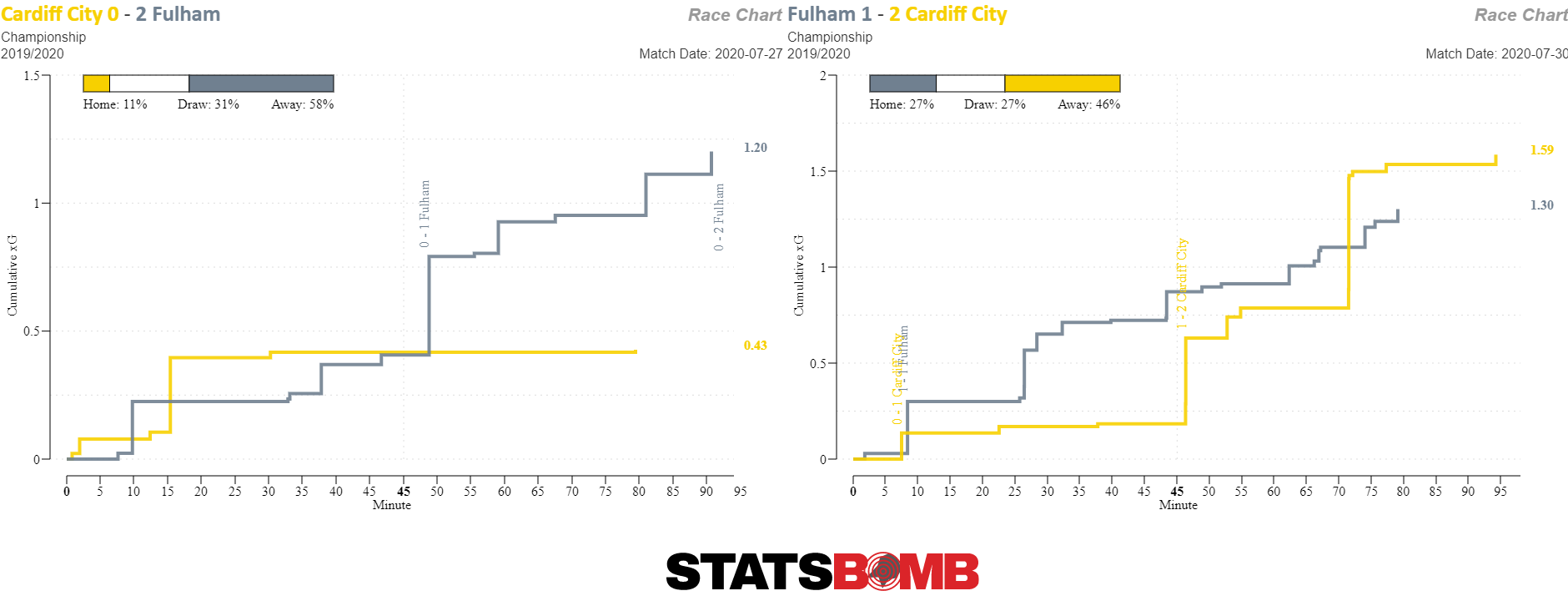 It was a similar story in the final. Fulham focused less on retaining the ball and more on preventing Brentford, and particularly Saïd Benrahma, from playing, staying in a more compact shape than usual but more importantly selecting the more energetic Bobby Reid ahead of Championship top goalscorer Aleksandar Mitrović in order to give them more mobility in leading the press and more pace on the counter. The result was an even game with the deadlock only broken by a moment of individual quality which I’m almost certain you’ll have seen if you’re reading this, but if not:
It was a similar story in the final. Fulham focused less on retaining the ball and more on preventing Brentford, and particularly Saïd Benrahma, from playing, staying in a more compact shape than usual but more importantly selecting the more energetic Bobby Reid ahead of Championship top goalscorer Aleksandar Mitrović in order to give them more mobility in leading the press and more pace on the counter. The result was an even game with the deadlock only broken by a moment of individual quality which I’m almost certain you’ll have seen if you’re reading this, but if not: 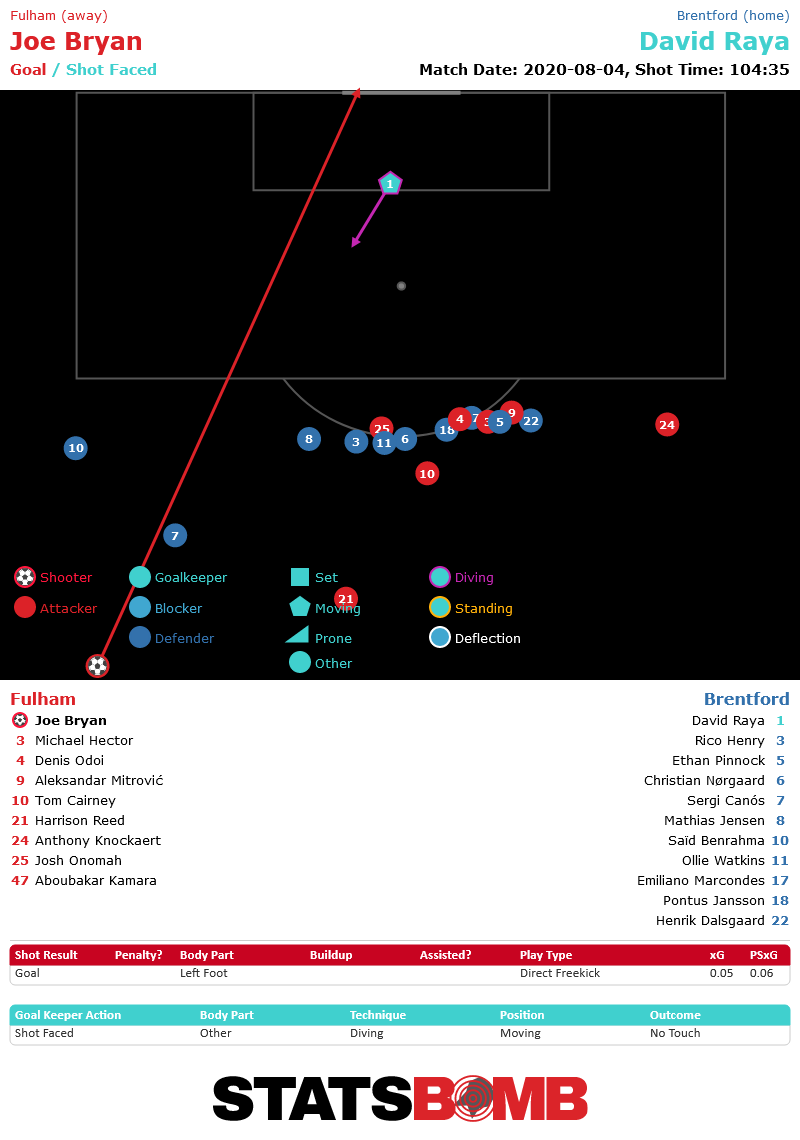 Fulham successfully negotiated the three games that their promotion depended on without riding their luck at any point during. Therefore, it’s undeniable that they did deserve their promotion, right? Let’s start to look forward now. It’s worth considering that Parker’s pragmatism, though not advisable when a big favourite with a talent advantage in a smaller league, does at least leave them better prepared to adjust to the Premier League than they were last time out. Although those attacking transitions will most certainly need to speed up. On that note, the signing of Mario Lemina from Southampton could help if he can replicate the form shown on the south coast that saw him mooted as a potential replacement for Mousa Dembélé at Tottenham. Lemina was flagged by StatsBomb’s own Euan Dewar when he analysed dribblers and their post-dribble actions a couple of seasons back and if he can help Fulham move through the centre of the park and transition from defence to attack more quickly or efficiently, that could be important. Similarly, the return of André Zambo Anguissa to the squad is notable. Anguissa was one of the more heralded signings of the 18/19 summer window and it looks increasingly more likely that he’ll stay a Fulham player in 2020/21, returning after playing a key role in helping Villarreal finish 5th in La Liga. Now two years older than when he first signed and closer to his peak at 24, there’s potential he could step up in the way that was hoped when he first signed.
Fulham successfully negotiated the three games that their promotion depended on without riding their luck at any point during. Therefore, it’s undeniable that they did deserve their promotion, right? Let’s start to look forward now. It’s worth considering that Parker’s pragmatism, though not advisable when a big favourite with a talent advantage in a smaller league, does at least leave them better prepared to adjust to the Premier League than they were last time out. Although those attacking transitions will most certainly need to speed up. On that note, the signing of Mario Lemina from Southampton could help if he can replicate the form shown on the south coast that saw him mooted as a potential replacement for Mousa Dembélé at Tottenham. Lemina was flagged by StatsBomb’s own Euan Dewar when he analysed dribblers and their post-dribble actions a couple of seasons back and if he can help Fulham move through the centre of the park and transition from defence to attack more quickly or efficiently, that could be important. Similarly, the return of André Zambo Anguissa to the squad is notable. Anguissa was one of the more heralded signings of the 18/19 summer window and it looks increasingly more likely that he’ll stay a Fulham player in 2020/21, returning after playing a key role in helping Villarreal finish 5th in La Liga. Now two years older than when he first signed and closer to his peak at 24, there’s potential he could step up in the way that was hoped when he first signed. 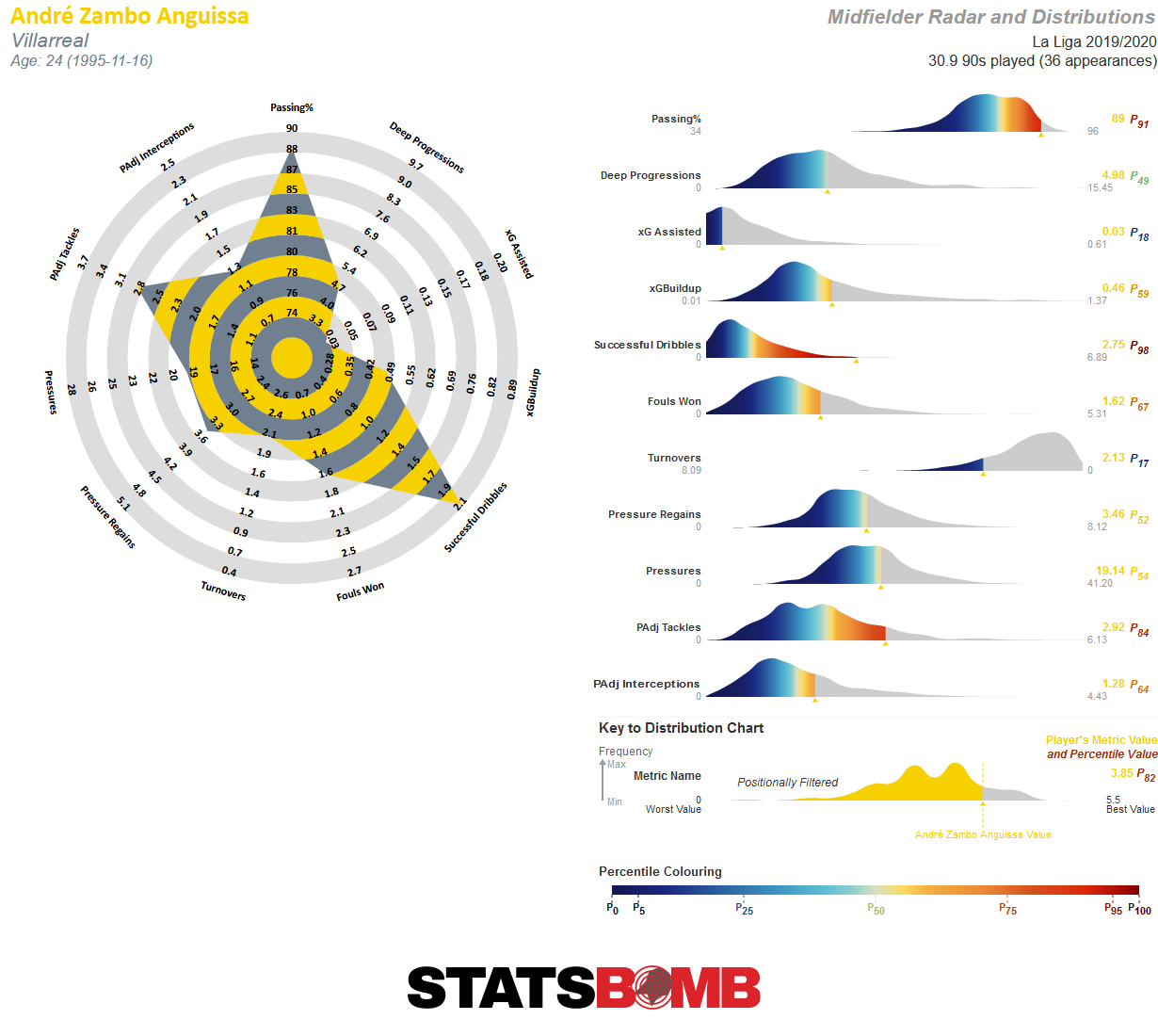 Anguissa was part of the infamous £100million spend that summer, but comparisons between that window and this are scarce. There were some domestic signings back then but the vast majority were brought in from overseas and with no experience of English football. This time, Fulham’s business has so far focused entirely on the domestic market and with smaller sums being exchanged: the only (soon to be confirmed) signing from overseas has been that of wing back Ola Aina who’s spent the last two seasons with Torino in Serie A but moved there from Chelsea. Of the business that remains to be done, there are concerns over Fulham’s reliance on 26-goal Mitrović, who was given very little help in the goalscoring department last season. He’ll be the main man again and has proven he can be counted on for some contribution at Premier League level, but more needs to come from the support acts out wide. Ivan Cavaleiro and Anthony Knockaert notched just nine goals between them last season and given the unlikelihood that Mitrović reaches another double-dozen, they’ll need to step up.
Anguissa was part of the infamous £100million spend that summer, but comparisons between that window and this are scarce. There were some domestic signings back then but the vast majority were brought in from overseas and with no experience of English football. This time, Fulham’s business has so far focused entirely on the domestic market and with smaller sums being exchanged: the only (soon to be confirmed) signing from overseas has been that of wing back Ola Aina who’s spent the last two seasons with Torino in Serie A but moved there from Chelsea. Of the business that remains to be done, there are concerns over Fulham’s reliance on 26-goal Mitrović, who was given very little help in the goalscoring department last season. He’ll be the main man again and has proven he can be counted on for some contribution at Premier League level, but more needs to come from the support acts out wide. Ivan Cavaleiro and Anthony Knockaert notched just nine goals between them last season and given the unlikelihood that Mitrović reaches another double-dozen, they’ll need to step up. 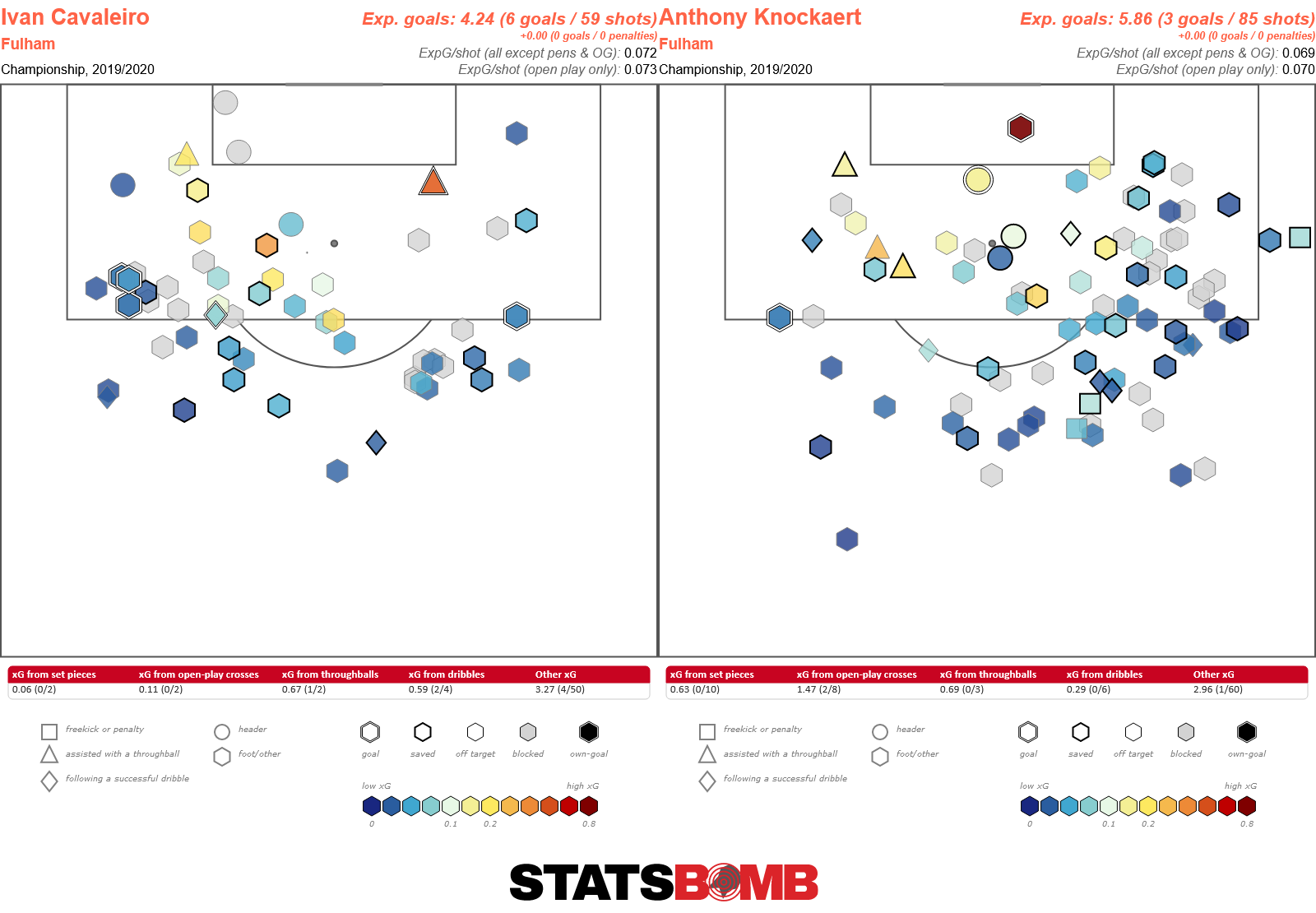 In a weird flip, Fulham could be coming into this season as a perceivably and demonstrably worse side than the one that was promoted last time out but at the same time one that’s better prepared and suited for the challenge that’s ahead of them thanks to a risk-averse manager and more settled squad. Expectations amongst the fanbase are also lower due to the manner of promotion and tighter transfer spending. Critiqued for much of last season but with a bit more credit in the bank after promotion, it’ll be interesting to see how much patience Parker gets should things not go to plan straight away. Joint relegation favourites with West Brom seems a fair assessment.
In a weird flip, Fulham could be coming into this season as a perceivably and demonstrably worse side than the one that was promoted last time out but at the same time one that’s better prepared and suited for the challenge that’s ahead of them thanks to a risk-averse manager and more settled squad. Expectations amongst the fanbase are also lower due to the manner of promotion and tighter transfer spending. Critiqued for much of last season but with a bit more credit in the bank after promotion, it’ll be interesting to see how much patience Parker gets should things not go to plan straight away. Joint relegation favourites with West Brom seems a fair assessment.
If you're a club, media or gambling entity and want to know more about what StatsBomb can do for you, please contact us at Sales@StatsBomb.com We also provide education in this area, so if this taste of football analytics sparked interest, check out our Introduction to Football Analytics course Follow us on twitter in English and Spanish and also on LinkedIn
